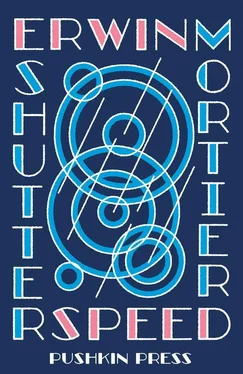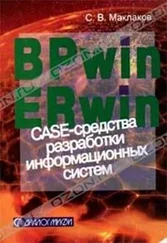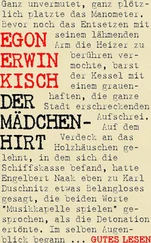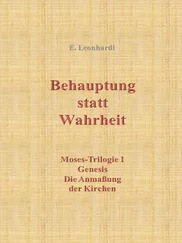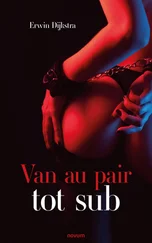After that I sometimes had the feeling that I was winding him up for the sole purpose of getting a thorough drubbing, so that I could secretly enjoy the humiliation of having my bones shaken up like an earthquake.
Words drove me mad at times. They would make the most extraordinary connections in my mind. I soaked them up like sweet-tasting poison until I was so saturated that they almost oozed from my pores. Wherever I went I left them on everything, like fingerprints.
I became so addicted that some days I woke up in a panic, not knowing where I was, groping frantically for sentences in the air like an alcoholic fumbling for the bottle in his bedside table. What a relief, after the early morning madness, to recognise the crack in the ceiling, the dingy skirting board, the pinecones on the bedposts, the green bedspread, and the chinks in the window frames out of which, in early spring, ladybirds would come crawling by the dozen after their winter sleep.
The master always used a red biro to write his niggling comments on the compositions I handed in. He thought them too high-falutin, or else too laboured. Too pompous, he said once, and the word rolled around my thoughts all day like a powder keg with a fuse. ‘You spray a lone sparrow in the gutter with bullets, hoping that one of them will hit the mark,’ he had said when he gave me back my composition looking like a blood-spattered bed sheet. ‘You shouldn’t exaggerate so.’
The others kept silent, hiding their glee. They had no idea what the teacher was on about, but I did. I was worried about making a fool of myself. There were things that sent an ecstatic shiver down my spine and made me go weak at the knees. The mere sight of the afternoon sunlight fracturing in the crown of the cherry tree outside my bedroom window was enough to set me off, or a sudden gust of wind whipping the poplars on the bank of the stream into a roar of rustling overhead, or sitting by myself in the kitchen at four-ish on a cloudless afternoon, watching a sunbeam slice through the curtains and hit the floor tiles, watching the dust dance in the light, dust particles that came from goodness knows where, from what had once been meteorites, if the master and his books were anything to go by, or from a rocky mountain ground down to humble grains of sand by the perpetual abrasion of water.
Such things made me want to shout at the top of my voice. Likewise the books in the cupboard at the back of the classroom that was unlocked only once a fortnight — I longed to shake them out like suitcases over my desk, so I might take the spilled words and hold them up to the light one by one, as if they were marbles and I had to decide which was the most beautiful, which the shiniest and which the most dulled by age.
Sometimes I found comfort in putting a perfectly round marble in my mouth, sucking its coldness and tumbling it around to make it click against my molars and then letting it roll further back, close enough to my gullet to make me gag, knowing that I should not be doing this, while on other days, when it drizzled and everything was dreary, I liked to run the tip of my tongue over an old marble that had struck the pavement countless times, just to feel some roughness, some jaggedness to relieve the monotony of perfection. And what a wonderful, mighty sensation it was to spit it out into the palm of my hand when no one was looking, wet with saliva like the chewed stone of a cherry or a peach, as if I had just gobbled up the world.
It was still hot, my eyes stung and I fought to keep them open. The light from the street lamp was too weak to see the pictures in the book properly. I could make out a ghostly figure holding a candle over what appeared to be an old man with white hair and hollow cheeks dozing in a chair.
Frederick the Great in Sanssouci on the night of his death. According to his personal physician the famous Kaiser suffered no bodily anguish upon yielding his noble soul to eternity.
Outside, a light rain had started to fall. I listened to the drops drumming dully on the leaves of the linden trees, and more loudly on the pavement.
I pushed the book away. My curiosity had evaporated into drowsiness.
I turned over on my back. The church bell sounded half-past eleven. Downstairs, Uncle lowered the blinds. I had a sense of slowly coming apart at the seams.
Later, I was woken by a loud crash. The window screen had come loose. A blast of cold air hit my bed, raindrops spattered on my writing table.
Elsewhere in the house a door slammed, the wind howled around the windows and one thunderclap followed another in quick succession. I heard Uncle run across the landing.
Before I had well and truly come to my senses I found myself getting out of bed to shut the window. The treetops were being buffeted in all directions. I saw a sheet of heavy-duty plastic flapping among the gravestones, doing a cartwheel and coming to rest for a brief moment before sailing off again and catching in the branches of a tree, where it remained.
I put on my trousers and vest and went downstairs. Uncle and Aunt were both in their dressing gowns, sitting at the table while the lightning flashed through the slits in the blinds.
‘Why don’t you put the kettle on,’ said Aunt. ‘We won’t have any peace for the next hour or so anyway.’
I went through to the kitchen and lit the gas under the kettle. Outside, the sky was seething with rage, the thunder was crashing everywhere.
‘It’s right on top of us!’ I shouted.
They did not react. I took three cups from the cupboard and set out the teapot on the draining board.
I overheard Aunt saying that a vault might not be such a bad idea, though she didn’t know how much it would cost.
‘We must do something ,’ agreed Uncle.
I entered the room, put the cups down on the table, took teaspoons from the drawer and began to distribute them.
‘Leave it,’ said Aunt. ‘I’ll do that. Don’t forget the sugar. And bring some cinnamon biscuits, will you.’
I went back to the kitchen. Out in the courtyard the rainwater gushed over the flagstones into the drain. Between two thunderclaps I heard the alarm bells go off at the level crossing.
‘She never cared,’ Aunt went on. ‘A flowerpot once a year, that’s all. She might show some interest. It’s the least she could do …’ I could hear the nervous shuffle of Uncle’s slippers on the tiled floor.
The water began to boil, making the kettle whistle. I heard the scrape of a chair. ‘Let’s not discuss it now, Laura,’ said Uncle. ‘The lad …’
I took the kettle from the hob and filled the teapot.
We drank our tea.
‘Hark at that, hark at that,’ Uncle repeated after each crash of thunder. He was standing by the window, craning his neck as if he could look right through the blinds at the sky. ‘Hark at that …’
In the meantime Aunt fished out the soggy remains of her biscuit with her teaspoon. She always left the biscuit in for far too long.
‘What do we need a new vault for?’ I asked as casually as I could. ‘Seeing as we’ve got two cellars already.’
It was true. In one of them stood several empty oil drums, and in the other were endless rows of bottled fruit which had been gathering dust for years along with a stack of Aunt’s unsold goods from the shop.
‘What did I tell you?’ said Uncle, looking hard at Aunt. He took a sip of his tea.
‘Not a vault like a cellar,’ said Aunt. ‘It’s for your uncle and me. And for your dad.’
‘My dad?’
‘He’s got to move,’ said Uncle. ‘They’ve all got to move. Don’t know why. They say it’s not healthy, a churchyard in the middle of the village. They’re going to make a new one, out in the fields by the lane.’
‘It’s only because of the Freemasons, if you ask me,’ said Aunt. ‘They don’t like being buried in the shadow of the church. That’s the reason, I’m sure. Simple as that.’
Читать дальше
